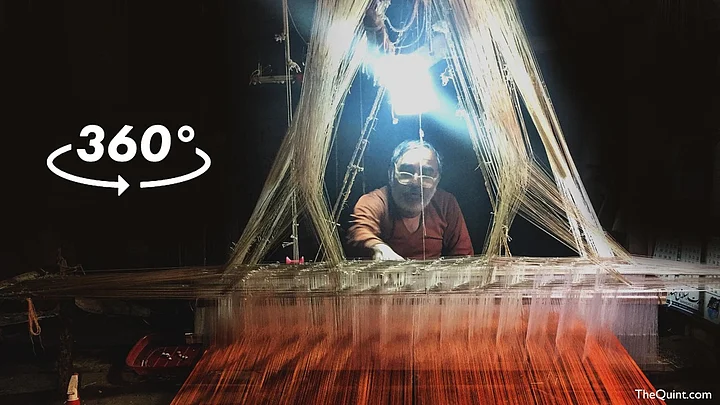It was on 17 May 2014 that Prime Minister Narendra Modi took part in a grand Ganga aarti at Dashashwamedh Ghat, to express his gratitude to the 5,81,022 voters, who had sent him to the Lok Sabha. “Neither have I been sent, nor have I arrived. I’m here because maa Ganga called me,” he had said.
After two and a half years, several unkept promises and a severe demonetisation exercise later, there is a mixed feeling among the people of Varanasi about Narendra Modi.
In Modi’s Varanasi
Ahead of the daily aarti, devotees rush to Alok Gupta’s makeshift stall to buy flowers and prasad. “I make 100 to 150 rupees daily. Post the note ban, my sales dropped and that affected my daily income. But to crack a whip on black money, we will have to bear with this,” says Alok. When I ask him who is he going to vote for, pat comes the reply, "Narendra Modi, who else”.
Terming demonetisation as a good decision, a man who sells Banarasi prints in a tiny shop, says, he will vote for the BJP. “There is so much of a law and order problem. There is poverty, corruption, and unemployment. It doesn’t matter whether it is SP, Congress or the BSP, they are all useless,” he says.
“Vote Wahan Hawa Jahan”
Fourty-five year old Raju Seth, who runs a sweet shop, says, “Demonetisation ka asar vote pe padega. Jahaan hawa hogi hum wahin vote karenge.” (Demonetisation will affect votes. I will vote where the wave is.)
“No customers, no boni, thanda bazaar”
Ramesh Jaiswal’s brassware shop is eighty years old. “This season, I had a loss of 40,000 rupees. I am reconsidering voting for PM Modi” he says.
Yuva Neta Akhilesh
Just 100 steps from the ghat, Raj Kumar and Rajat Singh, a father-son duo, sell cigarettes and tobacco. “Notebandi se kuch khaas farak nahi pada. Aakhir cigarette aur tambaku kaun chodta hai.” (Note ban didn’t have much impact on our sales. Who can stop smoking or consuming tobacco?, he asks rhetorically) True words, eh!
The duo is voting for Akhilesh Yadav this time, I am informed. They believe the Junior Yadav has a special focus on the education of children.
“Naav Ganga ma ka kapda hai”
A 14-year-old boy whose father owns a boat told The Quint, “Naav Ganga maa ka kapda hai”. (A boat is like a piece of cloth that covers Goddess Ganga.) In simple words he explained the significance the river holds in a boatsman’s life.
Even during the peak season of February, instead of ferrying devotees and tourists, the boats lay at the ghat, waiting for its customers. Quite an uncommon sight for Varanasi, especially in this season. “Business is down by 50 percent,” said Pradeep, who owns three big boats in Varanasi.
Besides boatmen, another community that suffered due to demonetisation was that of the weavers.
The Unhappy Weaver
Moving away from the ghats, we reach Lallapura, a Muslim-dominated area in the Varanasi Cantonment constituency of Varanasi. Mohammed Ajmal is a bunkar (weaver). After working for eight hours in a day for 3 weeks, he completes a Banarasi silk sari that earns him three thousand rupees. Demonetisation did affect his work he says, but that is not why he is voting for Akhilesh. He is voting for him because, “unka kaam bolta hai”.
